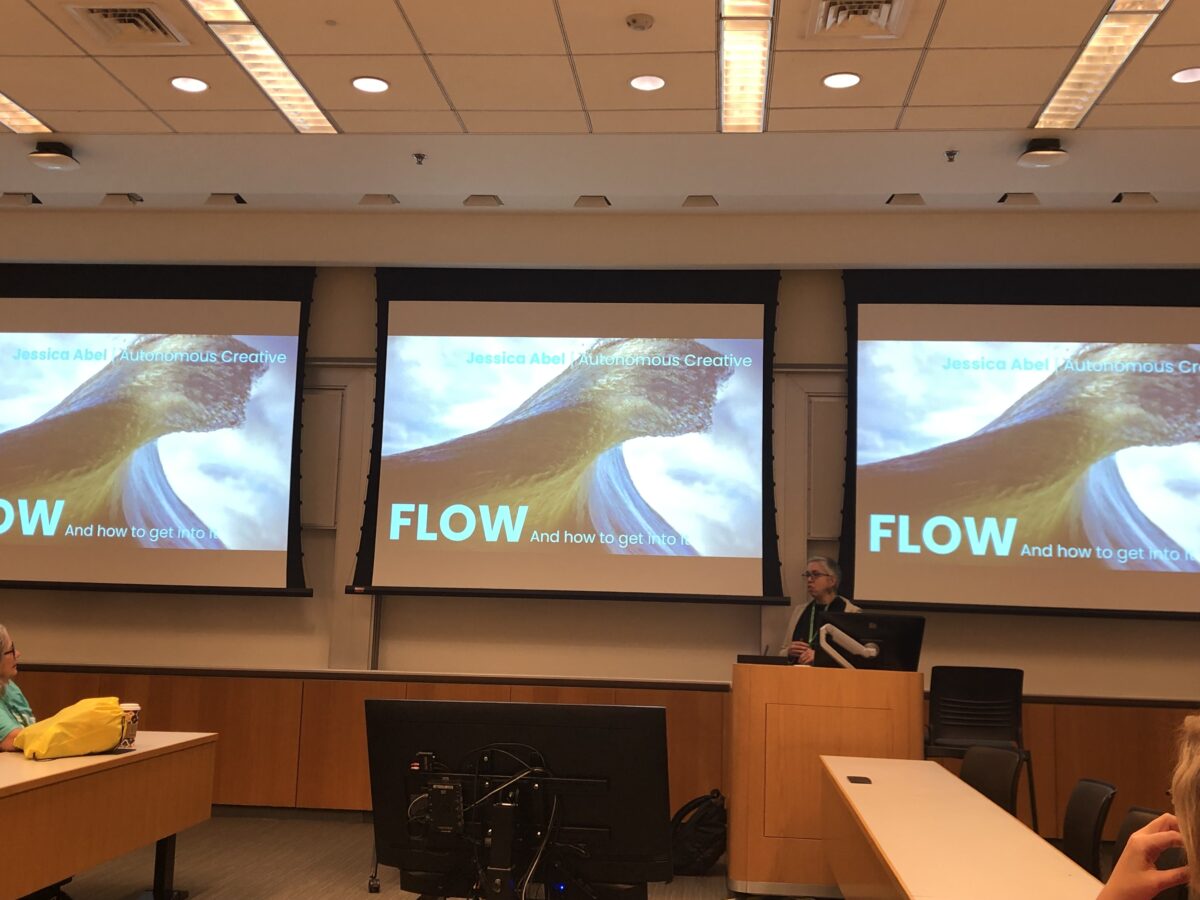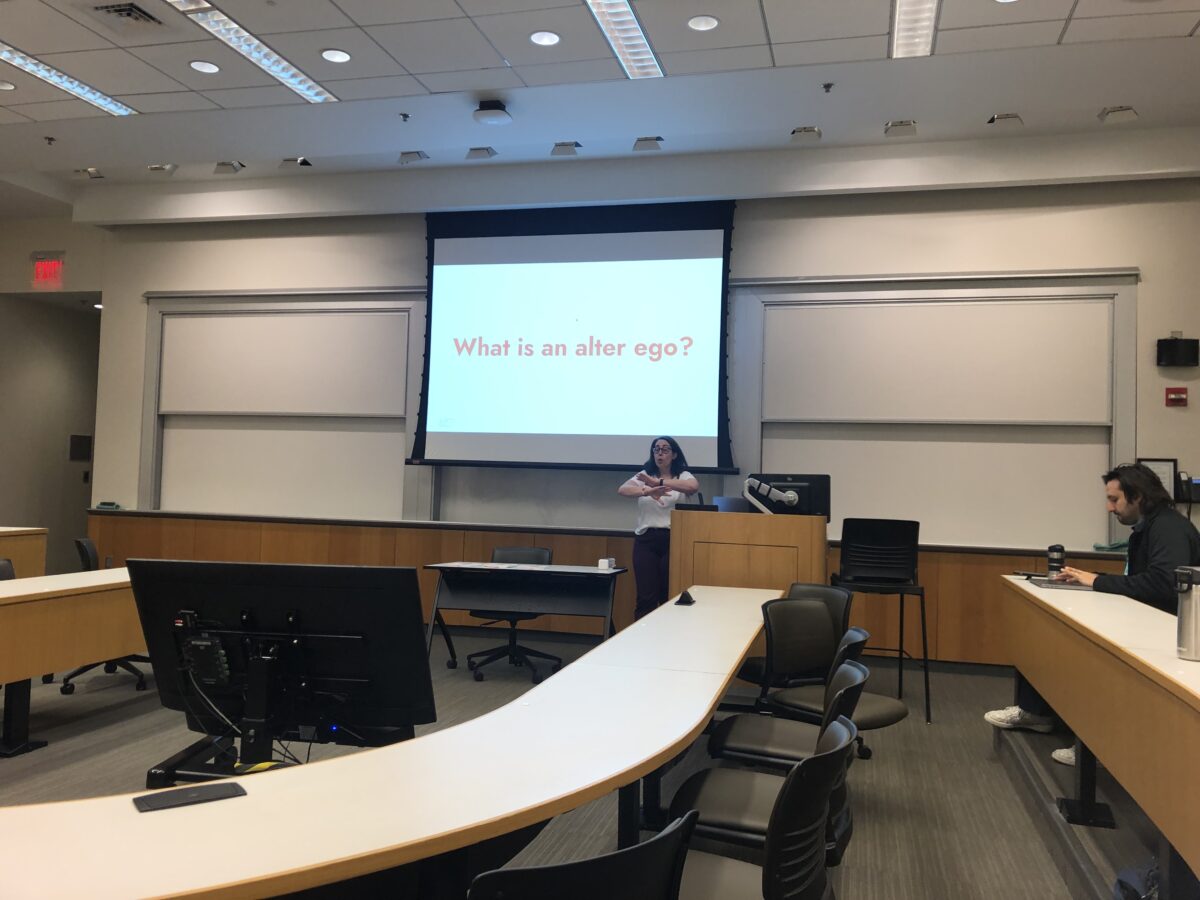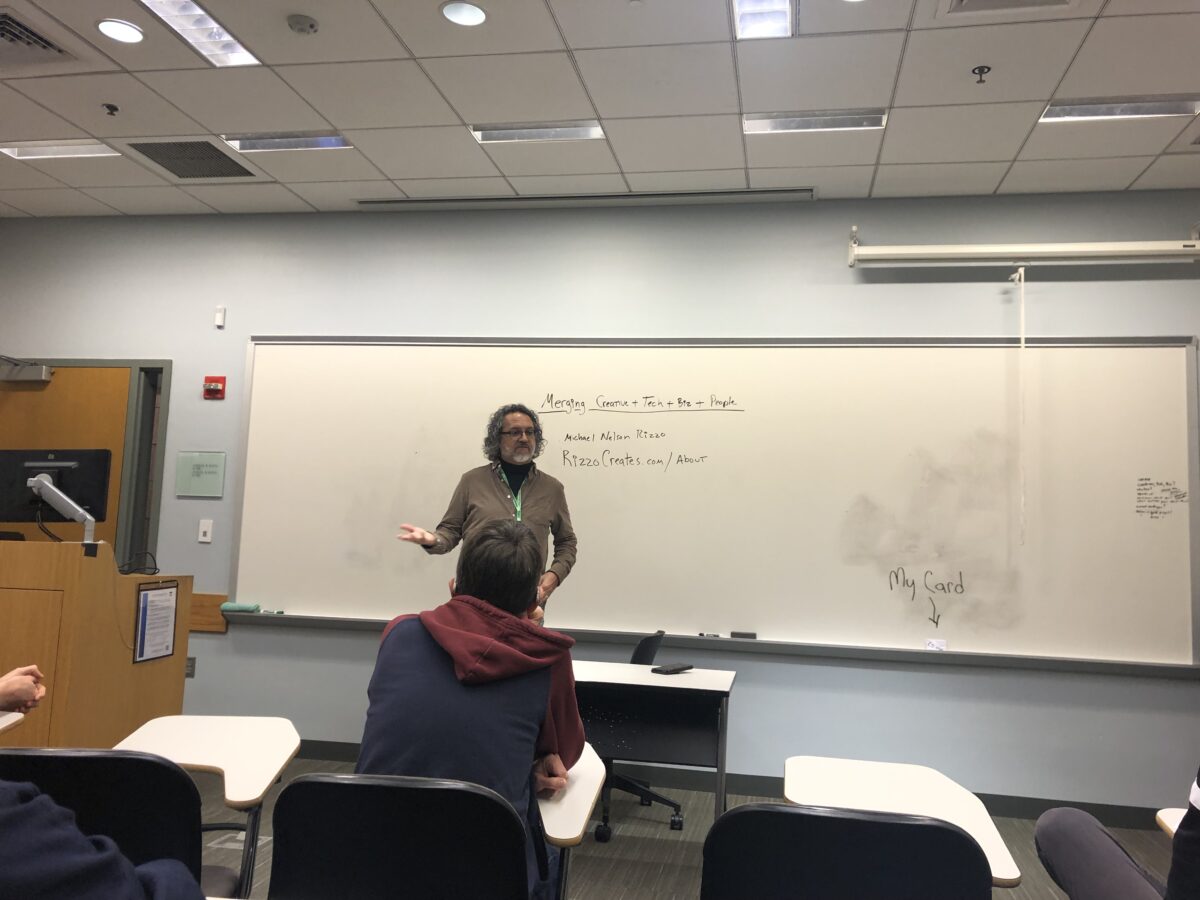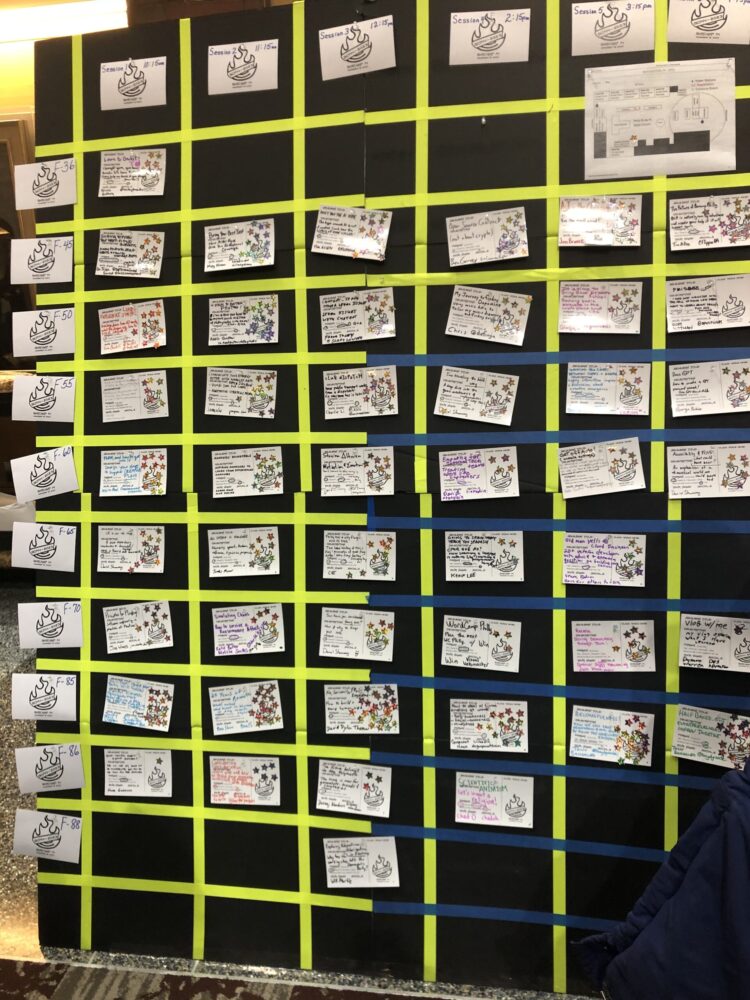Riding down the escalator at the Wharton School’s Huntsman Hall last Saturday, I could feel the shift in energy from a quiet college building to an excited crowd of technologists, creatives, public speakers and anyone else who wanted to learn something cool.
Welcome to the 14th annual BarCamp Philly.
After a two-year hiatus, the unconference saw almost 300 Philadelphians come to lead and attend talks focused on development, design and creativity. The sessions ranged from extremely technical topics such as artificial intelligence to one teaching how to crochet.
This BarCamp was my first, so I chose my sessions carefully. I wanted to learn something new, but didn’t feel the need to attend the ones with the most technical topics. Here are three takeaways from the sessions I chose:
Achieving flow requires a strategy

For Jessica Abel, a business coach and strategist for creatives, the dream is to sit down in the morning and dive right into her work. But the reality of life is having responsibilities that distract from achieving flow.
Abel explained in her session “Flow and How to Get into it” how to create a plan, track your time and prioritize goals in these three steps:
- First, track how long it takes to complete certain tasks for a few weeks.
- Then you can start making realistic plans for the next day, choosing one to three tasks you can realistically accomplish.
- The last step is to pick one goal that is the most important and focus on only that project until it’s completed.
“Focus on one at a time and make sure your project gets the best of you by not allowing others to hijack your time and not spread yourself too thin,” Abel said. “If you see what’s most important, then you can do what’s most important.”
Alter egos can help you show up as your best self

Meg Niman, founder of The Alter Ego Project, shared her alter ego, Dee, with the group during her session “Bring Your Best Self.” She described Dee as someone who has strong boundaries, isn’t a people pleaser, and accepts that some people will like her and some people won’t.
Niman channels Dee when she needs to feel confident — say, during a contract negotiation.
Niman’s definition of an alter ego is simply “another side of yourself.” Alter egos lower the stakes between your identity and your actions for any given situation. Self-distancing helps you look at the big picture and recognize that the outcome won’t be so bad.
“In this context, we’re talking about the creation — the active, conscious, creative act of designing somebody who’s going to help you be who you need to be in a given situation,” Niman said. “And there is power in that and it will give you some courage.”
Her tips for creating a strong alter ego include identifying your needs and creating space between you and your thoughts. Ultimately, having an alter ego taps into “inner knowing,” she said. This practice helps people feel more empowered and connected to their true self and what they want.
Creatives, tech people and business people can all understand each other better

Michael Nelson Rizzo invited the people at his session, “Merging Creative and Tech and Business and People,” to identify themselves as a tech person, business person or creative. Rizzo, who works in business development at Amplify Communication Design, as well as many other members of the group recognized that you can fit into multiple categories.
He asked the group to share what they wished people in the other identities understood more about their work. People’s answers ranged from business people wanting the other roles to not let their emotions lead as much, to creative people wishing the other roles didn’t see creativity as optional.
The group identified the need for more collaboration, communication and empathy based on peoples’ responses. Rizzo said all three roles need to listen to understand each other.
“Understand and listen and have empathy and use your talents and abilities for the tech people to communicate better with the creative people,” Rizzo said. “And the business people [can] listen to the hearts of the creative people, and have longer meetings that are maybe more structured for listening.”







